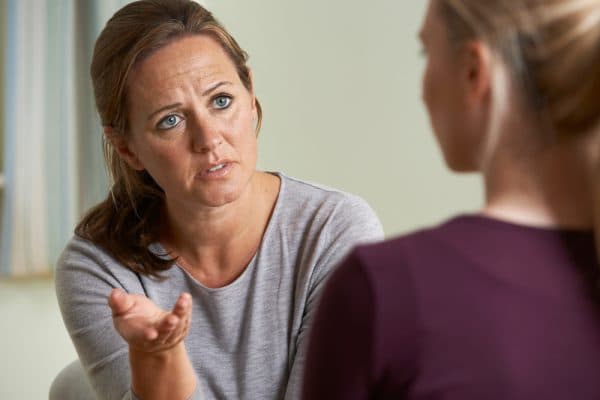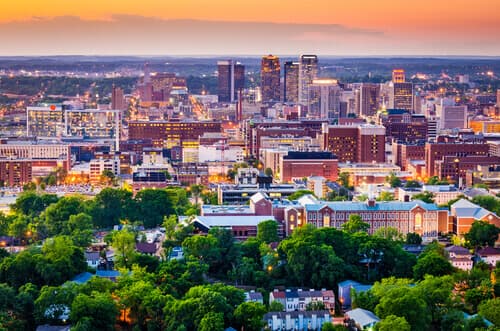Addiction Treatment & Drug Detox in the South
Addiction is a devastating illness that affects people all over the world, including the Southern United States. Fortunately, treatment for this disease is usually covered by insurance and there are many excellent addiction treatment resources and rehabs in the South for people of all backgrounds and income levels.
Emergency Services

There are a variety of options for getting help during a crisis involving drugs or alcohol. From emergency first responders to crisis hotlines, Southerners have many options for getting help in their state.
Find Narcan and Overdose Emergency Help in the South
Naloxone (Narcan) is a safe and accessible option for those suffering from opioid addiction. Having Narcan on hand can help prevent death from opioid overdose. People may obtain naloxone at certain pharmacies without a prescription in many states, including Mississippi.4
Naloxone is also available by delivery in most areas in the United States. If you, a family member, or someone you live with takes opioids as a prescription or abuses them recreationally, please consider accessing naloxone to keep with you in case of an emergency.
Is Narcan Free?
Some states offer Narcan for free, however not all states in the country do the same. If you are looking for ways to obtain free Narcan in Mississippi or another Southern state, you can first look into whether your specific state offers it for free. If not, contact a local pharmacy to see if they have partnered with a city or statewide program that can provide it for no cost.
Many insurance plans cover the cost of Narcan, while some may only cover it partially or not at all. If you are insured, reach out to a representative from your insurance company who can help you determine in what capacity Narcan may be covered based on your specific healthcare plan.
Learn more about Narcan use and availability in Mississippi.
Paying for Addiction Treatment

Getting help for addiction doesn’t have to break the bank. Learn more about using health insurance for drug and alcohol rehab coverage various other rehab payment options available to residents in the Southern United States.
Does Health Insurance Cover Addiction Treatment in the South?
Yes. Due to federal mandates like the Affordable Care Act (ACA) and the Mental Health Parity and Addiction Equity Act (MHPAEA), most insurers are required to provide coverage for substance use treatment. Additionally, the coverage for substance use and mental health services provided by a given plan must be equal to the medical and surgical coverage it provides.5
The extent of insurance coverage for addiction treatment depends on the plan itself, location, length of stay, and type of treatment needed. It’s important to find a rehab facility that is within the relevant care network, as this typically results in the lowest out-of-pocket costs, since these facilities contract with the insurer directly.6
Check whether your insurance plan covers rehab at Oxford Treatment Center by filling out this .
Paying for Rehab Without Insurance
While access and available options for addiction treatment is greatly improved by health insurance, there are still ways to pay for rehab without insurance, or when insurance does not cover the full cost.
There are government-funded addiction treatment centers that provide free or low-cost rehab to people in need. The Substance Abuse and Mental Health Services Administration (SAMHSA) has a directory that enables people to search for facilities in their area, including free options.
Unfortunately, free facilities often have strict eligibility requirements and long waiting lists.7
Patients may still be able to get affordable addiction treatment at private rehab centers with options like:
- Financing and payment plans.
- “Sliding-scale” payment options, which offer discounts for patients based on income or financial hardship.
- Credit cards.
- Personal loans.
Check Your Insurance Coverage
Find out within minutes whether your insurance carrier is in-network with Oxford Treatment Center by completing the online form below. It’s completely confidential and simple to fill out.
You’ll need your:
- Email address.
- Insurer company name.
- Insurance policy number.
Local FAQs

Get answers to some of the most commonly asked questions about treatment for drug and alcohol addiction in the South.
Addiction in the South

Addiction is a common, yet treatable disease.1 In 2019, more than 20 million Americans age 12 and up suffered from a substance or alcohol use disorder.14 But only a fraction of those who suffer from these disorders get the help they need.
Read on to learn more about the state of addiction is the Southern U.S., and how the region compares to the rest of the country.
Substance Abuse in the South
Several counties in Arkansas, Alabama, Louisiana, Mississippi, Tennessee, and Florida are covered by the Gulf Coast High Intensity Drug Trafficking Area. The close proximity to the Mexican border opens up the region to easy access for drug trafficking organizations (DTOs) that can then move large quantities of drugs through the area and impact local crime rates.15
But it’s not just illicit drugs that are problematic in the region. Alcohol and prescription drugs can be equally as dangerous when misused.
Each state in the region has its own struggles with drug and alcohol misuse and addiction, to varying degrees of severity.
Drug and Alcohol Use in Arkansas
Common drug threats in Arkansas include marijuana, cocaine, designer and synthetic drugs, heroin, fentanyl, and prescription drugs.
Rates of past-year substance use disorder (SUD) in Arkansas (7%) is similar to the national average (7.4%), according to data published in 2019.16
The 2020 Arkansas Epidemiological State Profile of Substance Abuse finds that:17
- Although fewer adults in Arkansas use marijuana than most states, rates have continued to increase in recent years.
- The rate of adults that report binge drinking has risen steadily over the last 3 reporting periods.
- Nonmedical use of pain relievers in Arkansas is higher than the national average but has been declining.
546 people in Arkansas died of a drug overdose in 2022.18
Addiction and Substance Use in Mississippi
Approximately 4.4% of Mississippi residents age 12 and up suffered from past-year addiction to alcohol between 2017 and 2019, less than the national average of 5.3%. The rate of past-year addiction to illicit drugs in Mississippi among the same demographic was 2.4%, less than the national average of 2.9%.19
Opioids are among the most serious drug threats in Mississippi:
- Opioid overdose deaths increased by 49% between 2019 and 202020
- Mississippi providers wrote 64.2 opioid prescriptions per 100 residents in 202021
- 9% of Mississippians age 12 and older misused prescription medication between 2017 and 2019.21
Substance Use in Georgia
In Georgia:
- Approximately 1,916 Georgians died of a drug overdose in 2020.19
- 4% of Georgians age 12 and up struggled with past-year illicit drug use disorder (less than the national average of 2.9%).22
- 2% of residents age 12 or older battled alcohol use disorder (AUD) within the past year (compared to the national average of 5.3%).23
Louisiana Drug and Alcohol Use and Addiction
Substance use is a serious issue in the Pelican State. In Louisiana:
- There is a high percentage of adult heavy drinkers (consuming 14 drinks in a week for men, or 7 drinks in a week for women) at 7.8%, according to 2020 data.24
- 1,896 people died of a drug overdose in 2020.19
- Providers wrote an estimated 68.3 opioid prescriptions per every 100 people in Louisiana in 2020.22
- 3% of residents suffered from a substance use disorder within the past year, between 2017 and 2019.25
Tennessee Substance Use Problems
In Tennessee:
- 1,307 people in died from opioid-involved overdoses in 2018.26
- Between 2017 and 2019, about 19,000 residents age 12 and up used heroin in the past year.27
- Providers wrote 68.5 opioid prescriptions per 100 residents in 2020.21
- Around 3.4% of residents age 12 or older misused prescription opioids between 2017 and 2019.27
- An estimated 5.7% of adults are heavy drinkers, according to 2020 data.24
Substance Use in Alabama
According to the Centers for Disease Control and Prevention, Alabama had the highest rate of opioid prescriptions dispensed per capita in the United States in 2020, with 80.4 opioid prescriptions written per every 100 residents.21
In 2020, 1,026 Alabamans died from a drug overdose.
The state’s past-year drug and alcohol abuse rates mirror the rest of the country and are close to national averages.28
Whether you are looking for drug rehab in Birmingham, drug rehab in Montgomery, drug rehab in Memphis, or even drug rehab in Biloxi, Charlotte, Jackson, or other nearby Southern city, we can help.
Substance Abuse Help
Rehab FAQs
Learn more about finding the right rehab and get detailed answers to common questions about treatment at Oxford: general questions, patient questions, and family questions.
Addiction Information
We offer useful resources such as: recognizing the signs of substance abuse, how to pay for treatment through medical insurance, choosing the right type of rehab, as well as guides for a variety of commonly abused substances.
How to Get to Oxford Treatment Center
Oxford is a drug and alcohol treatment center with two different campuses in Mississippi. Our full continuum of care includes detox, inpatient rehab, outpatient therapy, and sober living. Learn about the admissions process and get directions to Oxford Inpatient Rehab in Etta, MS or Oxford Resolutions Sober Living and outpatient campus in Oxford, MS.
American Addiction Centers (AAC) is committed to delivering original, truthful, accurate, unbiased, and medically current information. We strive to create content that is clear, concise, and easy to understand.
While we are unable to respond to your feedback directly, we'll use this information to improve our online help.
